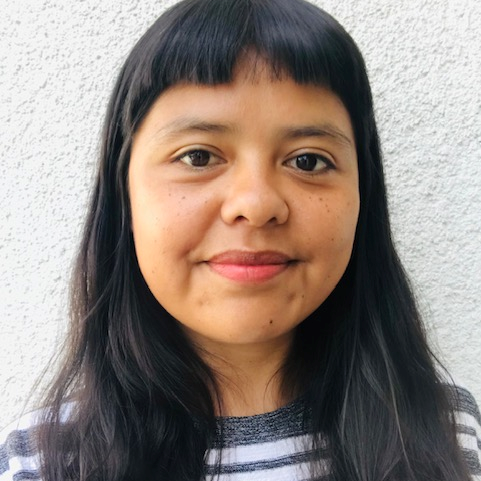Momentum around Open Science continued to build through August 2023; Moumita Koley rounds up the recent news and opportunities. Acknowledging the International Open Access Week’s 2023 theme: "Community over Commercialization”, we bring about the experience of DataCite in providing service to the scientific community.
Op-ed
Advancing a more open and inclusive research infrastructure: In an increasingly global and interconnected research landscape, where the gears of scientific production are in a constant state of motion, keeping track of and contextualizing research can be challenging.
In the last decade, the Open Science paradigm has emerged to foster more transparent and collaborative research , seeking to accelerate scientific progress for the common good. As stated in the recent UNESCO recommendation on Open Science, a cornerstone of the successful implementation of Open Science lies in investing in open scientific infrastructure and services.
At the heart of this infrastructure are Persistent Identifiers (PIDs), considered as the “building blocks” of the research landscape. PIDs play a crucial role in identifying and connecting researchers, institutions and their outputs.
In a robust research ecosystem, knowledge-sharing and collaboration thrive on the seamless and interoperable exchange of information. PIDs, such as Digital Object Identifiers (DOIs) for datasets, software, preprints and beyond, play a vital role in ensuring access, discoverability, and reusability of research. DOIs provide a lasting trail, mitigating issues like broken links and ensuring the perpetual findability of scholarly resources.
Additionally, PIDs enable linking between researchers and contributors, their organizations, and outputs/resources. By facilitating these linkages, PIDs promote a culture of research reproducibility and sharing. As researchers increasingly rely on the work of others, PIDs play a pivotal role in attributing data usage to its creators, ensuring proper recognition. Embracing PIDs also contributes to fostering the implementation of the FAIR principles — emphasizing that research data and other entities within the research lifecycle should be made Findable, Accessible, Interoperable, and Reusable.
One organization that champions this cause is DataCite, a non-profit founded by the research community itself in 2009. It endeavours to ensure that research outputs and resources are openly available and interconnected, enabling their reuse to advance knowledge across disciplines. By enabling the creation and management of PIDs, integrating services to streamline research workflows, and facilitating the discovery and reuse of research outputs, DataCite stands as a beacon in responding to the call for a more open and collaborative research landscape.
Gabriela Mejias
Community & Program Manager at DataCite
Gabriela Mejias is DataCite’s Community & Program Manager. In her role, she leads the Global Access Program, contributes to DataCite’s outreach efforts and seeks collaboration with the research community. Previously, she worked at ORCID focusing on community engagement, to increase adoption and membership. Gabriela volunteers at the EOSC PID Policy & Implementation Task Force, the Board of Directors of the Networked Digital Library of Theses and Dissertations and the NISO Diversity Equity Inclusion and Accessibility committee. She’s interested in shaping a more open research infrastructure.
Mohamad Mostafa
Regional Engagement Specialist, Middle East & Asia at DataCite
Mohamad Mostafa joined DataCite in June 2023 as a Regional Engagement Specialist for the Middle East and Asia. He works with the community to build more openness and trust in scholarly infrastructure and supports emerging communities transition towards Open Research and implementing its principles. Mohamad has participated in launching the ORCID Arabic interface to the Arab world and served as a volunteer Crossref Ambassador for the MENA region. Mohamad is based in Dubai (UAE) and he is passionate about Open Science and has been raising awareness among the research community.
Big stories in Open Science
CERN and NASA Collaborate to Pave the Way for an Inclusive and Open Research Era
- Marking 2023 as the Year of Open Science, over 100 open science practitioners and policymakers from five continents convened at CERN’s Globe of Science and Innovation in July. Co-hosted by CERN and NASA, the summit fostered global discussions on promoting open, FAIR, and collaborative scientific practices, heralding a transformative era for science across borders and disciplines.
OpenStax Set to Release Freely Accessible Organic Chemistry Textbook
- In a move to democratize education, Rice University’s OpenStax initiative will offer the first 12 chapters of “Organic Chemistry: A Tenth Edition” for free online, with full access available on September 20. Authored by Cornell University’s Professor Emeritus John McMurry, the book not only aims to alleviate financial burdens on students but also demonstrates how open educational resources (OER) can transform how students engage with and obtain their study materials.
MIT Press’s D2O Model Expands Open Access
- The MIT Press‘s Direct to Open (D2O) initiative has successfully concluded its second year, making the 2023 list of monographs openly available, thanks to the support of 322 participating libraries globally, marking a 33% increase from its inaugural year. This library-supported open access model signifies a transformative shift in scholarly publishing, promoting equitable and sustainable access to vital academic content.
New ‘Hybrid Open Access Dashboard’ Launched to Track Transition to Full Open Access
Astera Announces Funding for Innovations in Scientific Publishing: Calls Community for Ideas
- To revolutionize scientific publishing, Astera is initiating funding programs to develop modern tools to accelerate scientific exchange. Concentrating currently on life sciences, Astera is actively seeking insights from experts in scientific research, open science, and tool development to shape their new Science EIR program.
IBM, NASA Unveil Open-Source AI Model to Aid Climate Research
- NASA‘s Earth science missions are set to generate approximately 250,000 terabytes of data in 2024. To assist researchers in analyzing this massive dataset, IBM, in collaboration with HuggingFace and NASA, has introduced an open-source geospatial foundation model. This innovative AI aims to monitor deforestation, anticipate crop yields, and track greenhouse gas emissions with enhanced efficiency.
All-New Journalytics Academic & Predatory Reports Platform for Better Journal Discovery and Risk Evaluation
- Journalytics Academic & Predatory Reports platform will soon be available with advanced features like improved search results, new data visualizations, and an integrated database for verified and predatory journals. This redesign, combined with insightful data points and visual enhancements, aims to offer users a comprehensive and secure tool for efficient journal discovery, ensuring they’re well-informed about publishing opportunities and associated risks.
Scientific Publishers Warn: US Research Accessibility Could Be at Risk
- Eight prominent scientific publishers, including eLife and PLOS, have jointly alerted the US government about potential risks posed by the 2024 Commerce, Justice, Science Appropriations Bill. The group contends that the bill’s language could hinder public access to federally funded research, emphasizing the importance of Open Science and urging reconsideration of the proposed 12-month embargo on research accessibility.
Dimensions and Oxford University Press Announce Major Indexing Partnership
- Dimensions has teamed up with Oxford University Press (OUP) to index over 27,000 books and 500 journals from OUP’s Oxford Academic platform. This collaboration will enhance the Dimensions database, allowing users to access comprehensive data from these resources, further cementing Dimension’s position as a leading research tool.
CORE Introduces New Tool to Detect Duplicates and Versions in Repositories
- Connecting Repositories (CORE) has unveiled its latest feature, the “CORE Dashboard Versions and Duplicates module“, designed to assist the academic community in identifying near-duplicate content in their repositories. This user-friendly system offers side-by-side comparisons, labels articles using the NISO Journal Article Versions taxonomy, and allows for easy removal of exact duplicates. Available in Beta, the tool seeks collaborators to evaluate its efficacy, reinforcing CORE’s commitment to streamlining and enhancing repository management.
Canada’s Tri-Agency Reviews Open Access Policy
- As Canada’s federal research agencies reconsider their stance on Open Access, Queen’s University begins proactive measures to understand and adapt to the pay-to-publish model that has come to dominate academic publishing. The significant costs associated with Article Processing Charges (APCs) have raised concerns about financial sustainability and potential global inequities. Queen’s University Library and Queen’s Research spearhead consultations to chart a sustainable path forward, aligning with the university’s commitment to the UN’s Sustainable Development Goals.
APA and ResearchGate Collaborate to Enhance Reach of Psychology Journals
- The American Psychological Association (APA) has teamed up with ResearchGate, aiming to bolster the visibility of APA’s vast journal collection by offering ResearchGate members direct access to these articles. This partnership ensures access to over 5,000 new articles annually and a backfile of over 300,000 articles. Authors will benefit from the addition of their content to ResearchGate profiles, facilitating seamless access to impact statistics and fostering meaningful connections with their readership.
D//F Announces New Initiative to Understand and Support Open Digital Infrastructure
- The Digital Infrastructure Insights Fund (D//F), a collaboration involving major foundations like the Ford Foundation, Alfred P. Sloan Foundation, Omidyar Network, Schmidt Futures, and Open Collective, has unveiled a platform dedicated to understanding the creation and deployment of open digital infrastructure. This multi-funder initiative will curate research insights to champion a sustainable public commons of technology that benefits all. Emphasizing interdisciplinary analyses, the 2023 RFP invites proposals to study various facets of open digital infrastructure, from production and governance to real-world applications and challenges.
Open Library Foundation Launches OpenRS Coalition for Resource Sharing
- The Open Library Foundation (OLF) has introduced the Open Resource Sharing Coalition (OpenRS) in collaboration with various library consortia, open-source developers, and vendors. Aimed at providing a heterogenous resource sharing system, OpenRS operates on a “consortia first” approach, offering tools for advanced resource sharing, including seamless intra-consortia borrowing and sharing across multiple consortia.
“Toward an Open Monograph Ecosystem” Pilot Successfully Publishes Over 150 Scholarly Works
- The Association of American Universities, the Association of Research Libraries, and the Association of University Presses have published the final report of their five-year “Toward an Open Monograph Ecosystem (TOME)” project, producing over 150 open-access scholarly books in humanities and social sciences. Launched in 2018, The TOME project collaborated with over 60 university presses, publishing works across various disciplines, such as philosophy, history, and sociology.
University of California Partners with Frontiers for Open Access Publishing Pilot in Humanities and Social Sciences
- The University of California has teamed up with Frontiers, an open access publisher, for a one-year pilot program, facilitating affordable open access publication for UC researchers in twenty select humanities, social sciences, and sustainability journals. With this collaboration, UC libraries will fully subsidize the open access fees, enabling researchers to share their findings freely. This initiative strengthens UC’s commitment to open access research.
Open Science events and opportunities
- Public Knowledge Project (PKP), a free and open-source (FOSS) community, invites application to become a Community Contributor. Check out application page and submit and expression of interest. The application period will be open until 31 August or until all positions are filled.
- The call for the second cohort of Champions and Mentors for the rOpenSci Champions Program is now open. Apply before 4 September.
- The 4th Open Science FAIR will be held from 25-27 September, organized by OpenAIRE and the Spanish Ministry of Science and Innovation, under the auspices of the Spanish Presidency of the Council of the European Union. See the Open Science FAIR programme and register.
Job opportunities
Our top ten Open Science reads
- Progress towards open access is slow–
- Will Building LLMs Become the New Revenue Driver for Academic Publishing?
- The Corporate Capture of Open Access Publishing
- AI and Publishing: Moving forward requires looking backward
- The benefits of Open science are not inevitable: monitoring its development should be value-led
- Intervensions in Scholarly Communication: Design lessons from public health
- Patents were meant to reward inventions. It’s time to talk about how they might not
- Can open access be made more affordable?
- A decade of surveys on attitudes to data sharing highlights three factors for achieving open science
- Why preprint review is the way forward
Disclaimer
The information, opinions and recommendations presented by our guests are those of the individual contributors, and do not necessarily reflect the values and beliefs of the International Science Council.
Image by Sandro Katalina on Unsplash.


